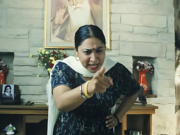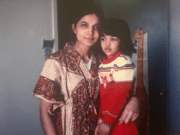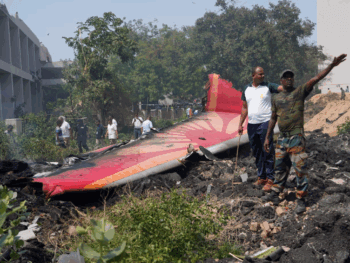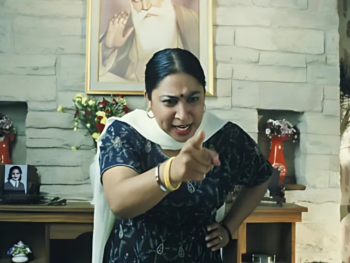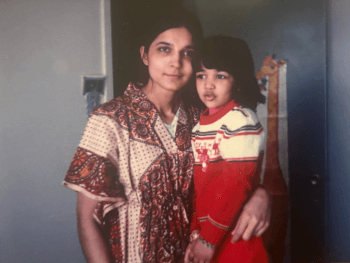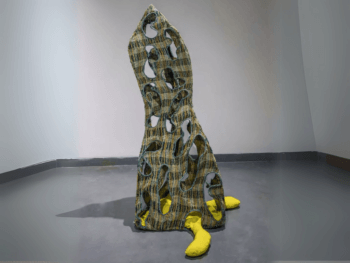Is Academic Pressure Threatening The Lives Of India’s Students? Part 1
Feb 05, 2016

In part one we examine the recent increase in student suicides in India which reveals the troubling consequences from academic and societal pressures youngsters face in order to achieve success in the never-ending rat race.
A small and unassuming town in India, Kota, has been making headlines worldwide since 20-year-old Shivdutt Singh committed suicide after failing to cope with the academic and social pressures he faced in his daily life. According to the National Post, Singh left a note saying, “I am responsible for my suicide. I cannot fulfill papa’s dream.” His father responded distraught, “Is it wrong to be ambitious? My son wanted to make the village proud by becoming a doctor. Every parent wants their child to become something big one day.”
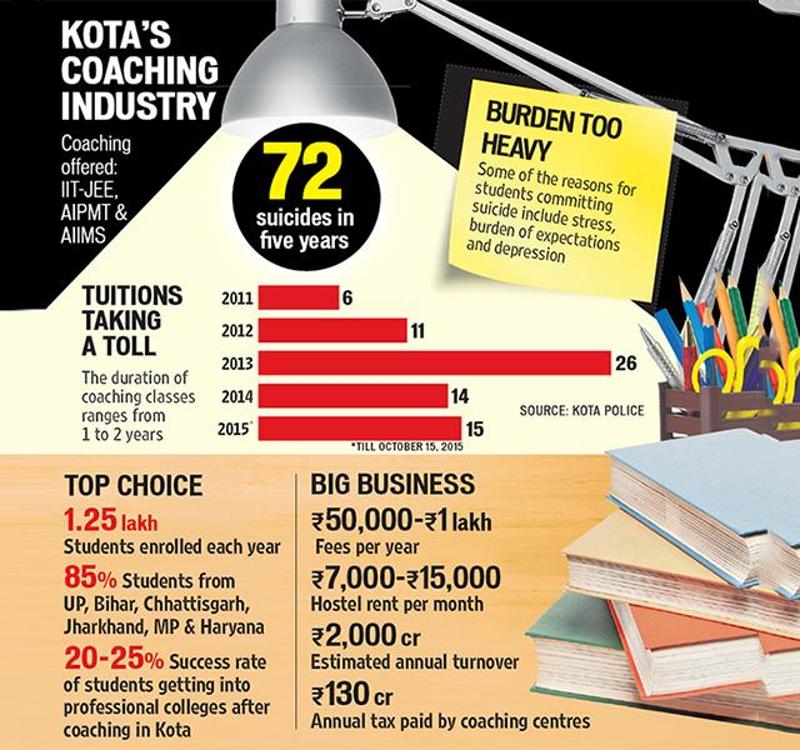
The story of the Singh family is unfortunately not a new one. In Rajkumar Hirani’s 3 Idiots (2009), Joy Lobo (Ali Fazal) faces the prospect of failure after the rigid-minded principal, fondly known as “Virus”, refuses to graduate him. Unable to bear the shame in the eyes of the society and his family, Joy commits suicide and is found hanging in his university. While the famous university Imperial College of Engineering (ICE) is fictional, there is an intense competition among the youth in India to achieve admission in popular Ivy league-esque universities such as the Indian Institute of Technology. For many of them, the journey begins in one of the most widely known coaching centres in India located in Kota.
The Statistics
According to the Times of India, Kota is emblematic of the harrowing rat race, which promotes the idea that each student should excel or he will be a failure. Posters of popular Bollywood stars are replaced with students who have gained entries into IITs and prestigious medical schools. People are streamlined into batches based on their performances. The students who are struggling are left behind with psychological and emotional anxiety, fear of failure and constant struggle with a sense of inadequacy. For example, another 17-year-old student’s parents regret sending him to Kota because he suffers from “headache, fatigue and bedwetting.” He also suffers from “blackouts, partial memory loss, and occasional hallucinations.” As more than 160,000 students migrate to Kota to prepare for their board exams, the National Crime Records Bureau (NCRB) has recently recorded a rise in suicides by 61.3 per cent. Gulf News reports that over-all suicides of children between 10 to 19 years old shows a total of 8,631 students in 2014. In cities like Delhi, India's capital, rates actually increased from 26.58 per cent between 2012 and 2013. Even though, at this time, the nationwide sucide rates dropped 0.47 per cent from 1,35,445 in 2012 to 1,34,799 in 2013, further highlighting that the student suicide endemic is a nation-wide problem not just specific to Kota, even if it is the most popular coaching centre hub in India.
Apparently, out of a hundred suicides, 45 students took their lives after failing their exams, while 26 students chose to end their lives after a failed romantic relationship. Finally, 24 students couldn’t cope with their family problems. These statistics reveal a troubling matrix of family and societal pressure that young students face in their daily lives in India. Not only is there no room to grow creatively, but students are “encouraged” to focus all of their energies on studies — studies which primarily require memorization and constant practice tests prior to exams, which will determine their future careers.
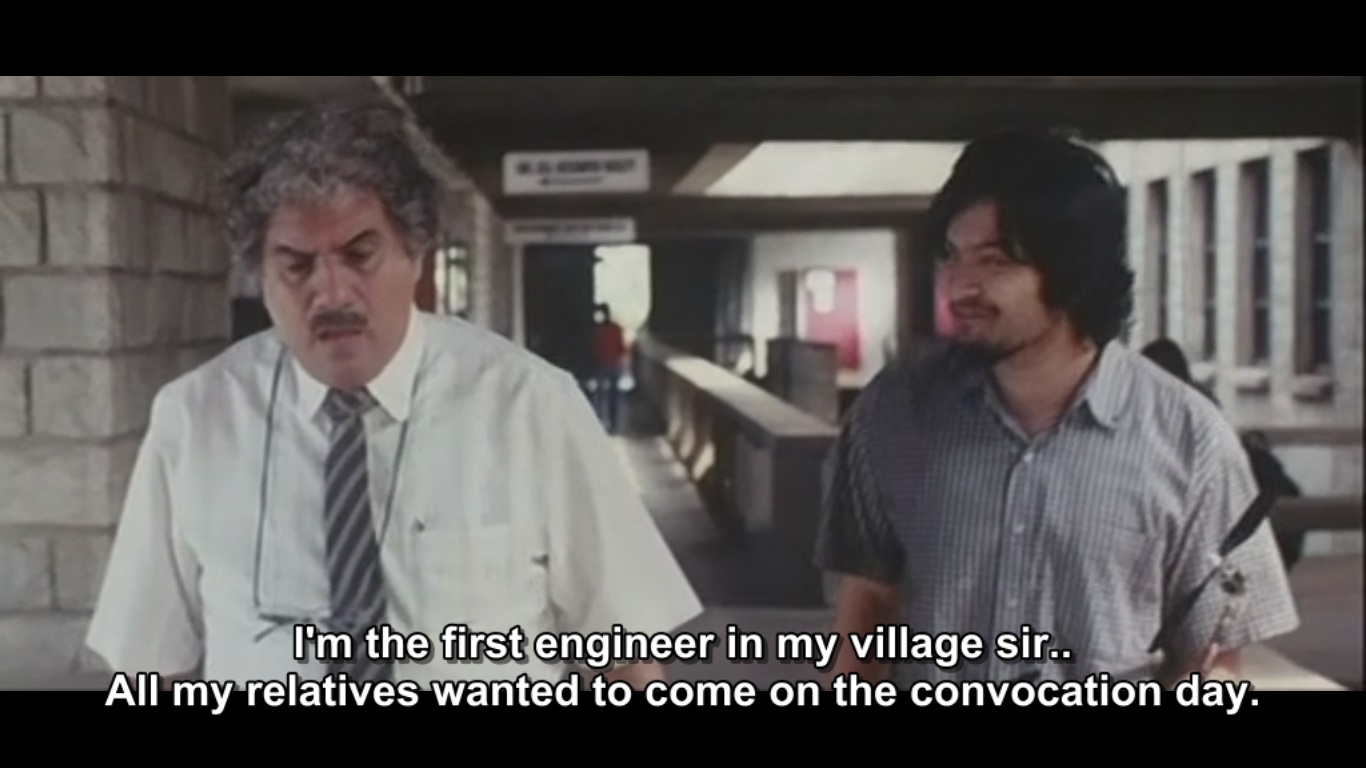
Photo Credit: www.muhdhito.files.wordpress.com
Taking A Risk With Non Traditional Studies
In an interview with the Washington Post, Madan Lal Agrawal, who works as a psychiatrist in Kota, reports “Students are under a constant state of anxiety here. They are unable to study, concentrate, remember, sleep or eat. They complain of headaches and breathlessness. Many just weep in front of me. They feel guilty because their parents have spent so much money and have high expectations. Parents often impose their own unfulfilled ambitions on their children.” Agrawal’s comments further shed light into the psychological, emotional and social breakdown which young students face. However, while he places the blame on the parents, there could be more factors that are play in their situations.
These students are discouraged from pursuing careers which they may be originally interested in. Humanities and other fields which encourage a creative and critical thinking component are looked down upon and associated with failure. While films like Wake Up Sid (2009) and Yeh Jawaani Hai Deewani (2013) demonstrate that children can indeed have successful careers in television and even advertising media industry, these careers are still associated with instability and failure because they do not offer a lucrative career like the medical and engineering degrees do. As a result, many students feel suffocated and limited psychologically and emotionally only working to shape their careers to please their parents and the society, which judges us on our monetary success. This, in turns, leaves many with little or no choice but to end their lives.
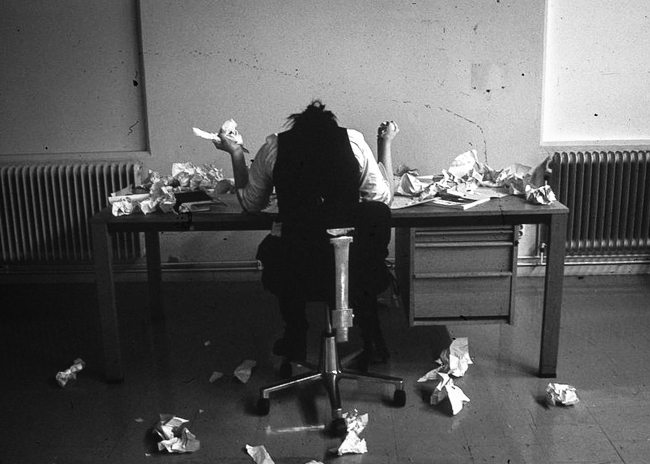
Photo Credit: www.theplaidzebra.com
Fear Of Failure
To sum up, the Kota suicide case underlines the need for a reform in India’s problematic education system that pre-determines the fate of many students before they are aware enough to make their own choices. By the parents dominating their career decisions, the children are also less independent, insecure and lack confidence to stand by their decisions to shape their lives. The other underlying factor is fear of failure and need for perfection. Fear of failure is constantly instilled in young children even before they begin kindergarten because many parents believe that fear will motivate children to perform their optimum best.
As a result, children are not able to grasp the idea that failure actually leads to success. But success also requires hard work, constant trial and error, and acceptance that it is okay to make mistakes and learn from them to achieve success. After studying in India and Singapore, I was introduced to this notion after I migrated to the United States and began public school education, I was surprised at the diversity of courses I had. I could choose to excel in some subjects while I could remain an average student in others. This is the type of education system India needs.
Are these suicides an indicator of something more sinister? We explore the issue of caste intolerance in next week's issue.
Main Photo Image Credt: www.3.bp.blogspot.com
Nidhi Shrivastava
Author
Nidhi Shrivastava (@shnidhi) is a Ph.D. candidate in the English department at Western University and works as an adjunct professor in at Sacred Heart University. She holds double masters in South Asian Studies and Women's Studies. Her research focuses on Hindi film cinema, censorship, the figure o...




